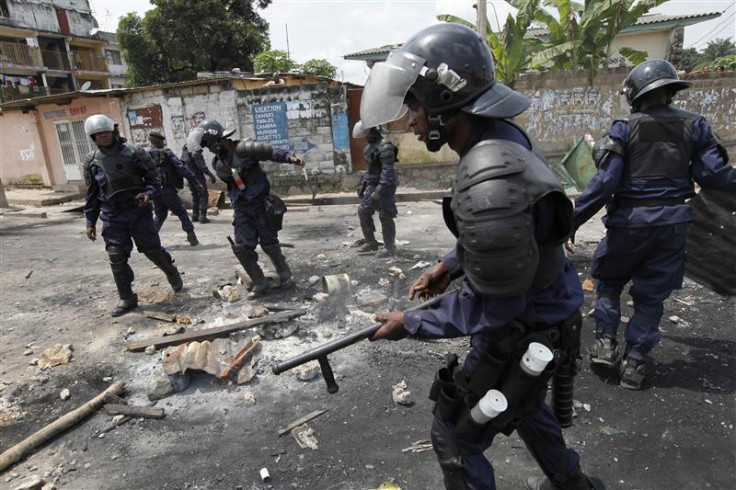Kinshasa's new police chief in DRC urges his men 'not to make the people suffer'
Colonel Palanga Nawej replaced controversial General Celestin Kanyama, who was sacked this week.
The new head of police of the Democratic Republic of Congo's capital Kinshasa has urged his men "not to make the population suffer" as he took his position following the sacking of his controversial predecessor, General Celestin Kanyama.
Kanyama was sanctioned by the United States in 2016 for his role in acts of violence and kidnappings that targeted civilians, women and children.
In 2016, the European Union in December also imposed sanctions on the chief of police, who the bloc accused of being "involved in planning, directing, or committing acts that constitute serious human rights violations in DRC".
The move was in response to extreme acts of repression taken against protesters in September 2016. At least 50 people were killed in "acts that constitute serious human rights violations" as they took part in protests against President Joseph Kabila.
While the reasons behind Kanyama's sacking remain unknown at this stage, the key figure in the Congolese security system was replaced by his assistant, Colonel Elvis Palanga Nawej, two days ago.
Speaking during a parade held at the Lufungula camp in Lingwala (Kinshasa) on 18 April, Colonel Palanga Nawej exhorted his men to establish a "good relationship with our people".
"We must not make the people suffer. When you are sent on a patrol, you must never steal people's goods, for you will pay it in one way or another," Colonel Palanga Nawej told his troops.
The new police head also advocated confidence-building, the fight against vices and brutality in police interventions.
"If you're on patrol, the people need to be happy to see their policemen work. If you find someone who comes back from a mourning, accompany them all the way back to their home. Let's stop with brutality. The brutality does not pay," the interim provincial commissioner, added.
The DRC endured much bloodshed and brutal political repression in the lead-up to the 19 December 2016 deadline that marked the end of Kabila's constitutionally mandated two-term limit.
Violent conflicts have intensified across the mineral-rich nation, as numerous armed groups, and in some cases government security forces – including police – attacked civilians.

© Copyright IBTimes 2025. All rights reserved.






















